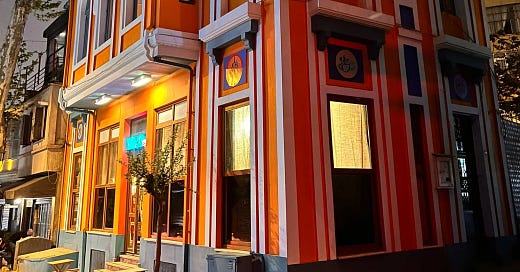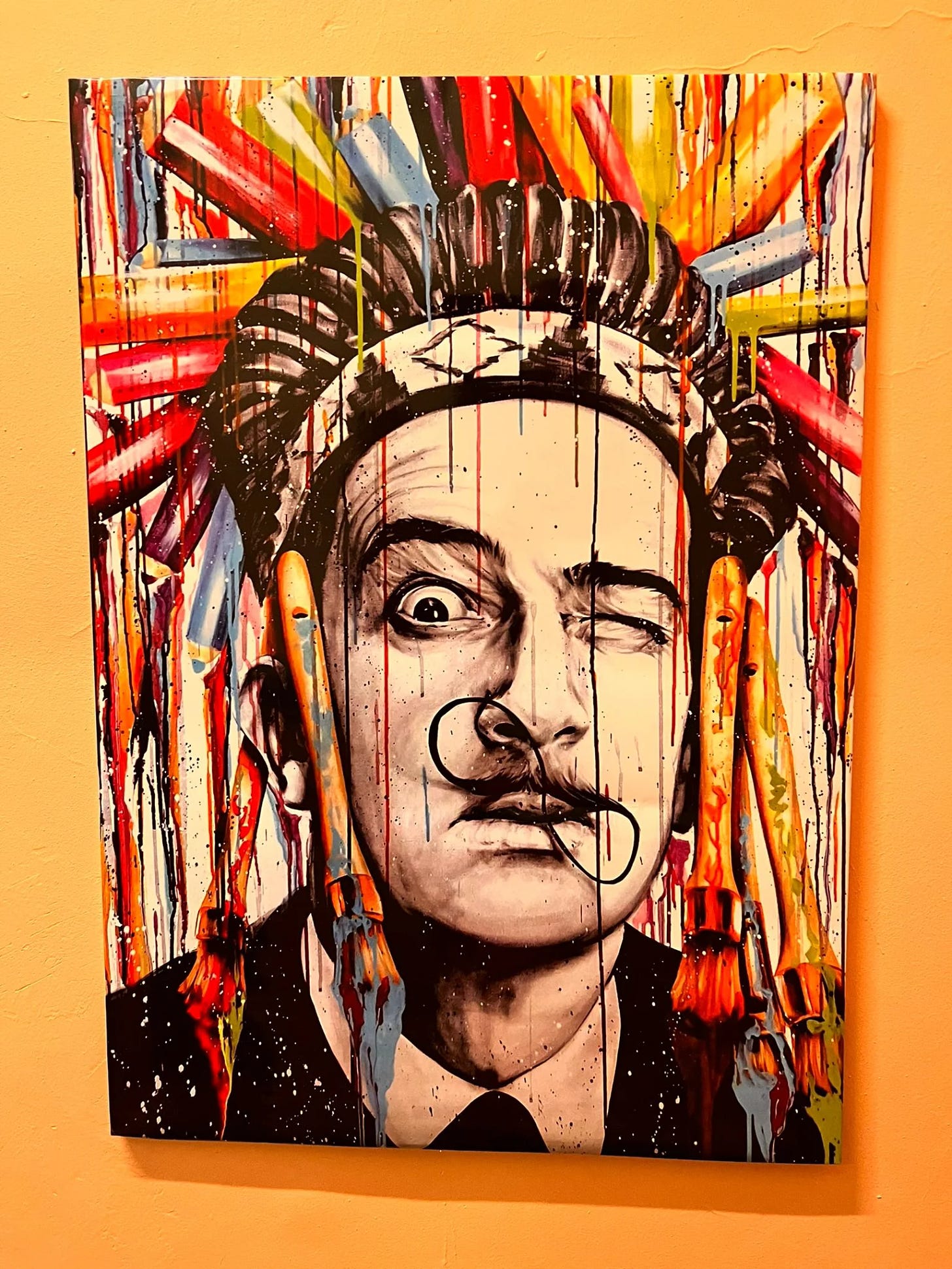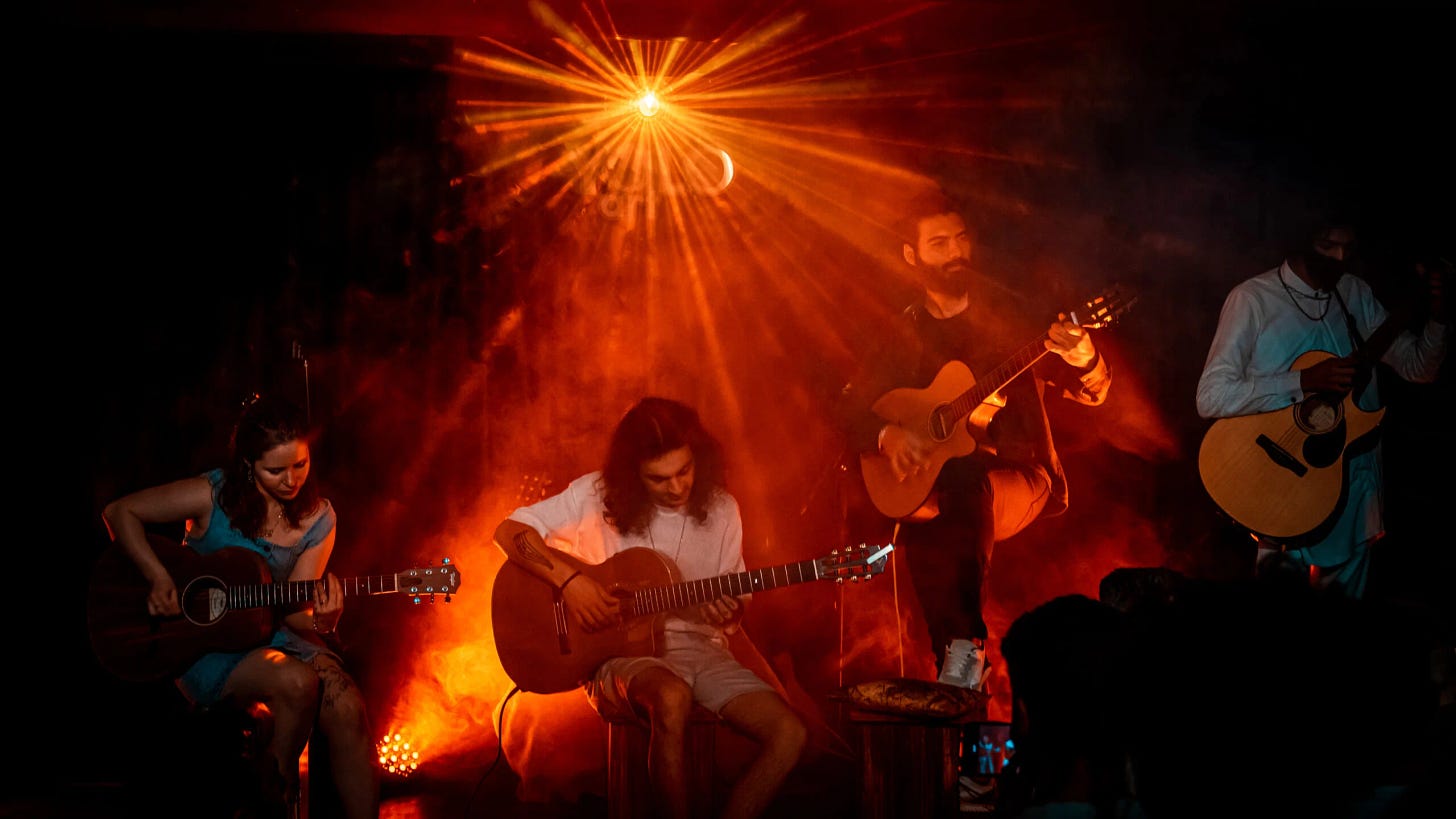A New Home For Arab Culture In Istanbul
Yolo Art Center is bringing refugee communities in Turkey together with music, art and theatre from across the Arab world.
The building was perfect, large and open-plan, with a big basement and ample room for a stage. Bayan Agha imagined it transformed, with warm woods and vibrant colors, music drifting down the stairs and walls adorned with pictures. She saw a cafe by the entrance, abuzz with people, their voices animated by art and ideas. It would take all of their savings to make the Yolo Art Center a reality but looking at this 200-year-old house in the heart of Istanbul, Agha and her business partner Jihad Bakr knew they could do it. “We Arabs love to express ourselves – we really needed this,” she says.
After fleeing the war in Syria, Agha, like many refugees she met in Turkey, yearned for somewhere to connect with the culture she had left behind. “There was nowhere for Arab theatre, music and dance. Such places aren’t supported by the government,” she says. Nine years in Istanbul and she was still searching for the warmth of community and a place where Arab creativity could thrive – “something connected to our culture – to feel alive and communicate as humans,” she says.
That was the driving spirit behind this endeavor, which would become a sort of home for the lost souls in Istanbul rebuilding their lives. “It’s very hard for refugees in Turkey, you can see the fear in their eyes. They flee trauma and war in their countries and then feel more pain when they arrive here… I want them to have a place that’s theirs,” Agha says.
There are 3.6 million Syrians in Turkey, which hosts the world’s largest refugee population, yet many like 34-year-old Agha struggle to feel at home, alienated by the mounting hostility of a system that limits their freedom of movement and access to work. Many are forced to work without permits, despite the risk of deportation if they are found out.
It happened recently to one of the regulars at Yolo Art Center, who suddenly stopped turning up for rehearsals. A week later, Agha learned he had been sent back to Syria for violating his visa. “He was desperate for work and took the risk,” she says. “These stories are very real, and that’s why we are trying to give people a warm, safe place where they can be themselves.”
Yolo Art Center can’t offer any protection against the authorities, who have visited the venue several times, but it can provide a place for refugees and others seeking sanctuary amid the chaos and clamor of the region’s most populous city. “Living in such a stressful city, we need a place to communicate, something connected to our culture,” Agha says.
Seven months after Agha and her business partner signed the lease on the building in Istanbul’s bustling Fatih district, Yolo Art Center is on its way to being the cultural hub and home away from home that Agha has searched for in Turkey. “It’s not easy dealing with all the papers, and the police and the hostility to foreigners – honestly I would have preferred someone else to do it – but since no one has, I tried to create the place that I was looking for.”
And now that she’s found the venue and created the space, secured the permits and handled the authorities, raised the funds and paid the bills, despite a currency crash that forced them to re-write their budget, she’s happy and proud of what they have achieved. “When you enter this place, you feel the energy. People come here to teach and learn, or simply take part and believe in what we are doing and that gives us the drive to be even more energetic and supportive,” she says.
There have been lucky moments. The day their license application came through demanding payment of almost $4,000, was the same day that Ideas Beyond Borders approved a grant to cover the fee as well as a heating system that their landlord refused to install. “It came at just the right time,” Agha says.
Other experiences have been harder – discovering their friend had been deported or seeing the fear prompted by a visit from the police. “Some people ran away, some hid, some started crying. When you are a foreigner, the neighbors pay more attention to you. It’s not easy to feel secure in Turkey.” But Yolo Art Centre is gradually becoming the haven she hoped, building a reputation among regulars who describe it as a second home. “They say they feel like they are back in Syria with their family and that it gives them a reason to stay in Istanbul,” Agha says.
Looking back on the first years she spent here, Agha recalls how lonely life could be as a refugee. “I started with nothing so I just worked, sometimes 17 hours a day. You get into this routine of just working and going home, without meeting people or making friends.” Yolo is a place where people break out of this repetitive reality and reimagine their existence, suspending, for a moment the feeling of a life in limbo, as they wait for an opportunity to be something other than a refugee.
“What Bayan Agha and Jihad Bakr have achieved with the Yolo Art Center is nothing short of remarkable—a sanctuary for the soul in the heart of Istanbul, where art and community provide a comforting embrace for refugees,” says Faisal Al Mutar, President of Ideas Beyond Borders.
Agha is confident that she can restore a sense of community to the regulars at Yolo - she sees it developing daily in the interactions between people from different countries, faiths and backgrounds, who come here to share ideas, learn new skills and nurture creative talents. Many participate in the growing program of theatrical performances, film screenings, live music, stand-up comedy and other pursuits, whether as seasoned artists, or novices trying something for the first time. Others come simply to soak up the atmosphere, learn a little and meet new people.
Looking back at the opening night last May, Agha describes her vision for Yolo Art Center as a place that unites communities in Istanbul, where divisions between different cultures can run deep. “I watched as people from all backgrounds came together – modestly dressed women with their hair covered chatting with women wearing mini skirts. It was amazing.” As the historic house filled with people that night, she knew she had created something special, a place where people from all walks of life could be themselves, the usual barriers dissolved by shared interests and opportunities in a place that reminds them a little bit of home.
This article was written by Olivia Cuthbert.






